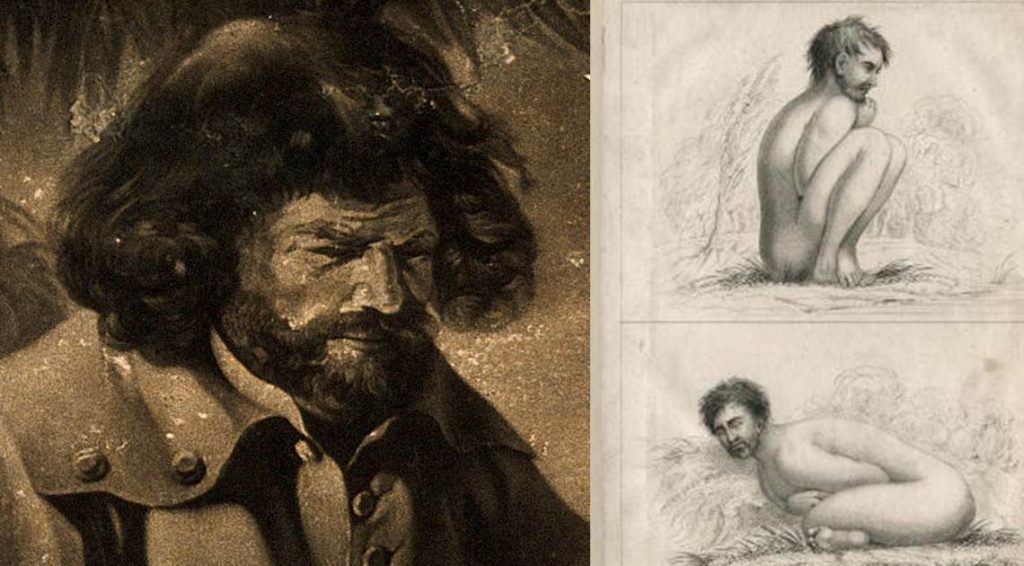Wild Peter
A wild boy who was captured in the woods near the German town of Hameln, in Hanover, on July 27, 1724. He appeared to be about 12 years old. He could not speak and ate only vegetables and grass. He was briefly a court favorite and learned to identify King George I of England as “ki scho” and Queen Caroline as “qui ca,” although he never learned to speak articulately. Wild Peter died in 1785.

A German naturalist and scholar later examined all the earliest documents on Wild Peter and concluded that he must have lived with people until shortly before he was captured, because he wore a rag around his neck and parts of his body were pale rather than tanned, suggesting that he had worn breeches. But not all agreed.
Peter’s case (like that of other “wild children,”) strongly influenced contemporary views of how humans came to be civilized. French philosopher Jean Jacques Rousseau considered Wild Peter a model of an unspoiled “natural man,” and Scotland’s Lord Monboddo wrote: “I consider his history as a brief chronicle or abstract of the progress of human nature, from the mere animal to the first stage of civilized life.”
